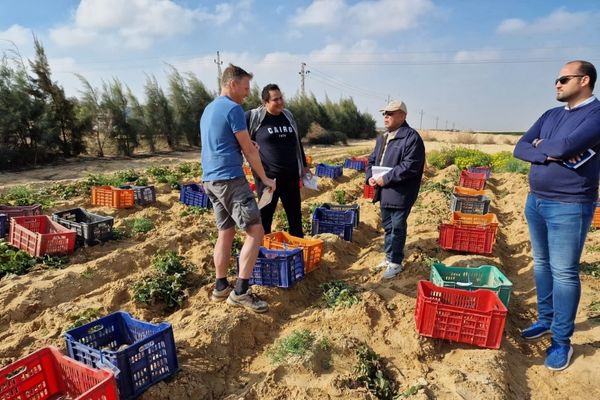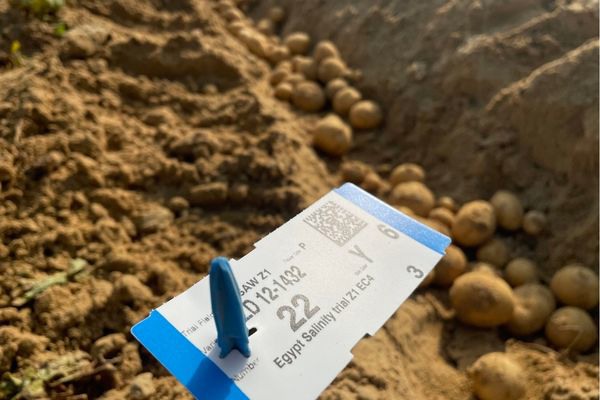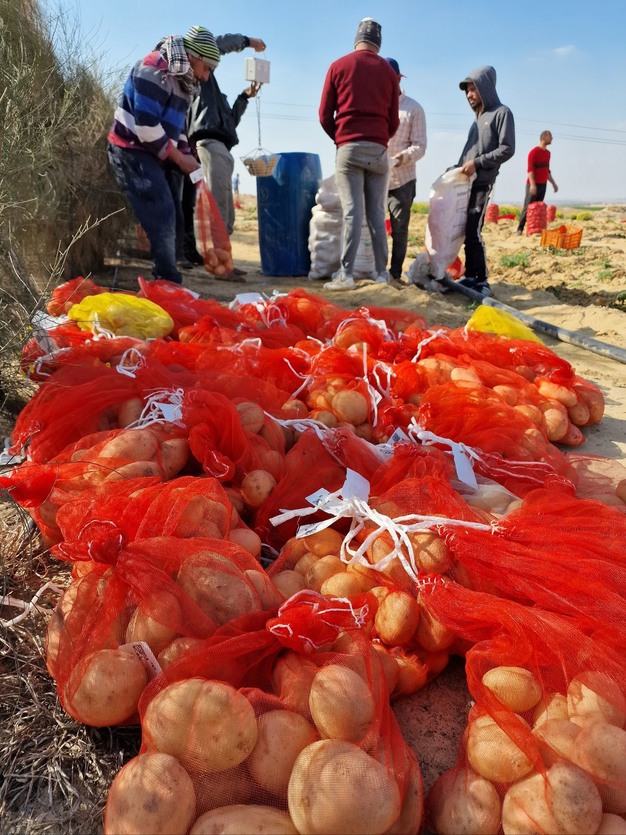The Dutch potato breeder and seed exporter HZPC has completed a salinity trial in Egypt, with a harvest event organized in late January. The trial is designed to identify which potato varieties are best suited to the climate, soil, and salinity conditions in Egypt.

According to Mr. Jeroen Bakker, Head of Breeding Fresh Markets at HZPC, "the trial comes as a response to the problem of salinity in soils and irrigation water, which is increasing and represents a real challenge to potato producers. The trial is therefore of great importance, not only for us but also for the producers who are facing this problem".
The trial is the result of a collaboration that started 5 years ago, in the framework of the "Desalt Project", and in partnership with the Egyptian authorities, the Dutch embassy in Egypt, and Egyptian and Dutch companies. "We could have carried out the trial by ourselves, but the best approach was to include relevant parties, to consult with local producers, and to involve the national authorities. We want the results of the trial to be known and adopted by the producers, and it makes sense to include them in the early stages."

The role of the Salt Doctors was particularly important, according to Mr. Bakker, "as their participation allowed us to take all the necessary measurements for the trial to take place".
Mr. Bakker adds: "The trial was carried out on 51 potato varieties, on three levels of salinity, including a control group, in order to deduce which varieties and new breeding lines can deal with the harsh level of salinity in the irrigation water, in sandy desert soil and a hot climate. We have now harvested the Winter crop for a couple of consecutive years. We will continue to carry out the tests on the Spring crop during the following months." The results are conclusive, according to Mr. Bakker: "Several varieties did really well, especially the Sagitta variety which performed particularly well and showed a high tolerance to salinity. The size and quality of the tubers for this variety are very good, and the yield as well."
The results are conclusive, according to Mr. Bakker: "Several varieties did really well, especially the Sagitta variety which performed particularly well and showed a high tolerance to salinity. The size and quality of the tubers for this variety are very good, and the yield as well."
These results are usable immediately, concludes Mr. Bakker: "The varieties confirmed in this trial, including Sagitta, are already commercial, and we can supply them immediately.". HZPC is supplying producers in the Mediterranean countries. "In the Middle East, growers from Saudi Arabia, Kuwait, and Egypt, will definitely be interested in the Sagitta, and we're looking forward to work with them."
For more information:
M. Jeroen Bakker
HZPC Research BV
Tel: +31 (0)513 48 98 88
Email: [email protected]
www.hzpc.com










